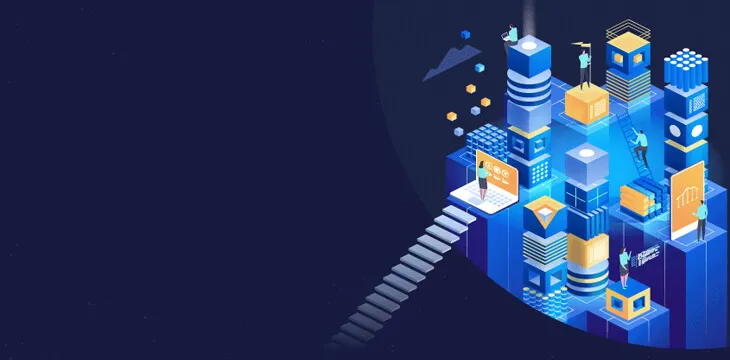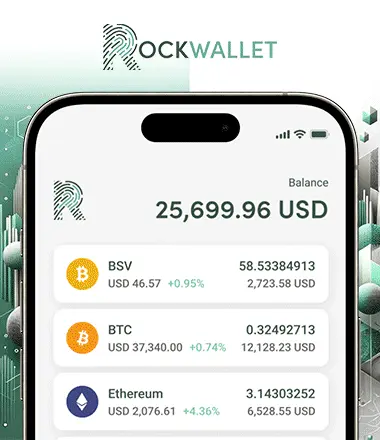Securely exchanging value in the form of cryptocurrencies is just one of the problems blockchain can solve. In fact, there are several viable applications for blockchain technology with promising futures. While mainstream adoption may still take some time, blockchain technology is fast becoming relevant across different sectors.
As more businesses start to adopt blockchain in their operations, it is expected that it will eventually revolutionize common business transactions and the global financial system as a whole.
Table of Contents
- Beyond Cryptocurrency
- Problems Blockchain Can Solve
- Future of Blockchain
- Blockchain Applications FAQs
- Infographic
Beyond Cryptocurrency
Other than being the building block of Bitcoin and other digital currencies, blockchain’s wide range of uses holds substantial promise. Remember that this digital ledger fixes and maintains data entries using a peer-to-peer network. As a result, blockchain can address privacy concerns, eliminate discrepancies in databases, and fix other notable recordkeeping issues.
Cryptocurrency Runs on Blockchain Technology
People who have just entered the cryptocurrency world tend to think that digital currency and blockchain technology are the same thing. While this mistake is highly understandable, it is important to explain the distinctions between the two.
Blockchain is the technology that powers Cryptocurrencies such as Bitcoin. It is a digital ledger of transactions that is maintained and distributed among several users. It can record relevant information (e.g., transaction time, exchange amount, and other personal details) and link them to build verified sets of data. Through proper encryption, each entry is authenticated, secured, and distributed to the public for transparency.
Blockchain Can Solve Multiple Problems
That means cryptocurrency is just one of several applications for blockchain technology. The same ledger could be used to solve a variety of other problems. In fact, just about any financial, business, legal, or recordkeeping system that requires accurate and immutable entries could make use of blockchain.
Problems Blockchain Can Solve
As the popularity of blockchain technology continues to grow, it’s important to understand how this innovation can be used beyond trading and investing. This guide will discuss seven industries with problems that blockchain can address.
Supply Chain/Logistics
Companies operating in large-scale industries (e.g., automotive, food, pharmaceutical, etc.) will significantly benefit from blockchain. Since they constantly purchase and sell goods to and from different parties, blockchain technology can help them record their transactions.
Being able to monitor orders, track invoices, and enter payment details seamlessly from start to end will ensure that all recordkeeping responsibilities are accomplished. Additionally, using blockchain technology means all the information will be readily verifiable from one single, decentralized ledger.
Accounting
Blockchain is being used to optimize accounting processes. With blockchain, accountants can verify the ownership of assets and record entries with ease. In turn, blockchain solutions can help organizations reduce their operating expenses while decreasing the workload of teams.
While blockchain can keep track of financial transactions, this does not mean that the technology will take over accounting jobs. Though the technology may be evolving at a rapid pace, essential tasks such as auditing must still be done by a certified professional. In that vein, blockchain technology should be seen as a supplemental tool.
Social Media
Social media platforms are free for anyone to use. This is because the personal information you provide along with the content you post and consume become the products. Social media companies mine through your activity in order to present you with personalized and highly targeted advertisements.
To counter this, blockchain for social media is more about data ownership and protection. While blockchain can also provide data security, it empowers users and lets them take back control of their data.
Users are the direct owners of the content they create via blockchain-based social media networks. Therefore, the user can choose to profit off of the data they generate instead of a tech giant like Facebook, Instagram, or TikTok.
Insurance
Fraud is highly prevalent in the insurance industry. Customers intending to file a claim may look for policy loopholes and resort to unethical tactics in order to acquire more money. This is precisely why proper documentation and recordkeeping is vital for both clients and service providers.
Blockchain technology can ensure fairness between both parties – especially with claims – because it is almost impossible to change records after they have been logged to the ledger.
Healthcare
A person may need the services of more than one healthcare provider in their lifetime. For example, you need a pediatrician as a child, an internal medicine doctor as an adult, and women need an OB-GYN when pregnant. Keeping a lifetime of record of visits, diagnoses, and medical procedures is a tall order, even with the assistance of current technological solutions.
Healthcare recordkeeping is one of the most promising applications for blockchain technology. It can provide a universal and unified source of truth that all healthcare providers can use with ease. Compare this solution to the present where record sharing between hospitals, providers, and laboratories is frequently limited and stored in a non-uniform way.
Public Service
Documentation errors are a common problem in government operations. Disorganized documents, inconsistent filing procedures, and a reliance on paper records can cause both the citizen and worker substantial stress. The good news is blockchain can address this concern through the secure digitization of files.
Blockchain’s capabilities allow workers to securely digitize physical records. Moreover, automatically navigating documents will also prove to be useful for processes such as elections, property records, and citizenship applications.
Security
Overall, blockchain technology can eliminate insider and cybersecurity threats within organizations. This can greatly reduce the risk of a database leak since ledger entries can only be accessed by authorized employees.
In the event an unauthorized individual attempts to manipulate an entry, everyone in the network will be immediately notified of this change. Therefore, the likelihood of defrauding a company will decrease, while the likelihood of catching perpetrators will increase.
Problems Blockchain Can Solve Table
The following table summarizes the most common applications for blockchain technology, identifying the problems and solutions blockchain offers.
| Application | Problem | Solution |
|---|---|---|
| Supply Chain/Logistics | Tracking product movements within an industry, particularly between companies that use different systems | Blockchain provides a single, universal system that is public, immutable, and decentralized. |
| Accounting | Accurate bookkeeping of sensitive financial information. | Blockchain is a triple entry accounting system that gives the accounting industry increased transparency and a single ledger, at nominal transaction costs. |
| Social Media | Consumers don’t own the personal information and data they produce for social media companies. | Blockchain allows uses to control and monetize their own data, with increased privacy. |
| Insurance | Protect and verify beneficiary records to decrease fraud | Since blockchain entries cannot be easily tampered with, the potential for fraud from either the client or the company is markedly decreased. |
| Healthcare | Availability of accurate healthcare history and records | Blockchain has the ability to put a patient’s information in one secure public ledger that healthcare providers can quickly access. |
| Public Service | Disorganized manual recordkeeping using outdated filing systems. | Records can be digitized and securely recorded on one single ledger, convenient for citizens, workers, and auditors. |
| Security | Securing sensitive information | Blockchain reduces the probability of security breaches by limiting access to information encoded on an immutable ledger, making it easy to identify anyone trying to manipulate data. |
The Future of Blockchain
Keeping all of the above in mind, it’s clear that blockchain’s features can go beyond the world of cryptocurrency, trading, and investing. Understanding how it can impact different sectors will give you a better idea of what the financial landscape and certain industries may look like in the not-too-distant future.
To learn more about blockchain or cryptocurrencies in general, read our Bitcoin guide for beginners.
Blockchain Applications FAQs
Blockchain technology allows businesses to monitor orders, track invoices, and enter payment details seamlessly from start to end to satisfy their recordkeeping responsibilities.
With blockchain technology, accountants can verify the ownership of assets and record entries with ease. In turn, blockchain solutions can help organizations reduce their operating expenses while decreasing the workload of teams.
Social media companies mine through your activity in order to present you with personalized and highly targeted advertisements. To counter this, blockchain’s social media application is more about data ownership and protection. While blockchain can also provide data security, it empowers users and lets them take back control of their data.
Blockchain technology can ensure fairness between both parties – especially with claims – because it is almost impossible to change records after company or client saves them to the ledger.
Blockchain technology can provide a universal and unified source of truth that all healthcare providers can use with ease. Present recordkeeping methods and policies limit sharing between hospitals, providers, and laboratories to the detriment of patients.
Disorganized documents, inconsistent filing procedures, and a reliance on paper records can cause both the citizen and government worker substantial delays. Blockchain’s capabilities allow workers to securely digitize physical records on one secure, immutable ledger.
Blockchain technology can eliminate insider and cybersecurity threats within organizations. In the event an unauthorized individual attempts to manipulate an entry, everyone in the network will be immediately notified of this change.
Problems Blockchain Can Solve Infographic
To help you see its true value, this infographic will discuss real-life problems that the technology can solve.


 07-18-2025
07-18-2025 



